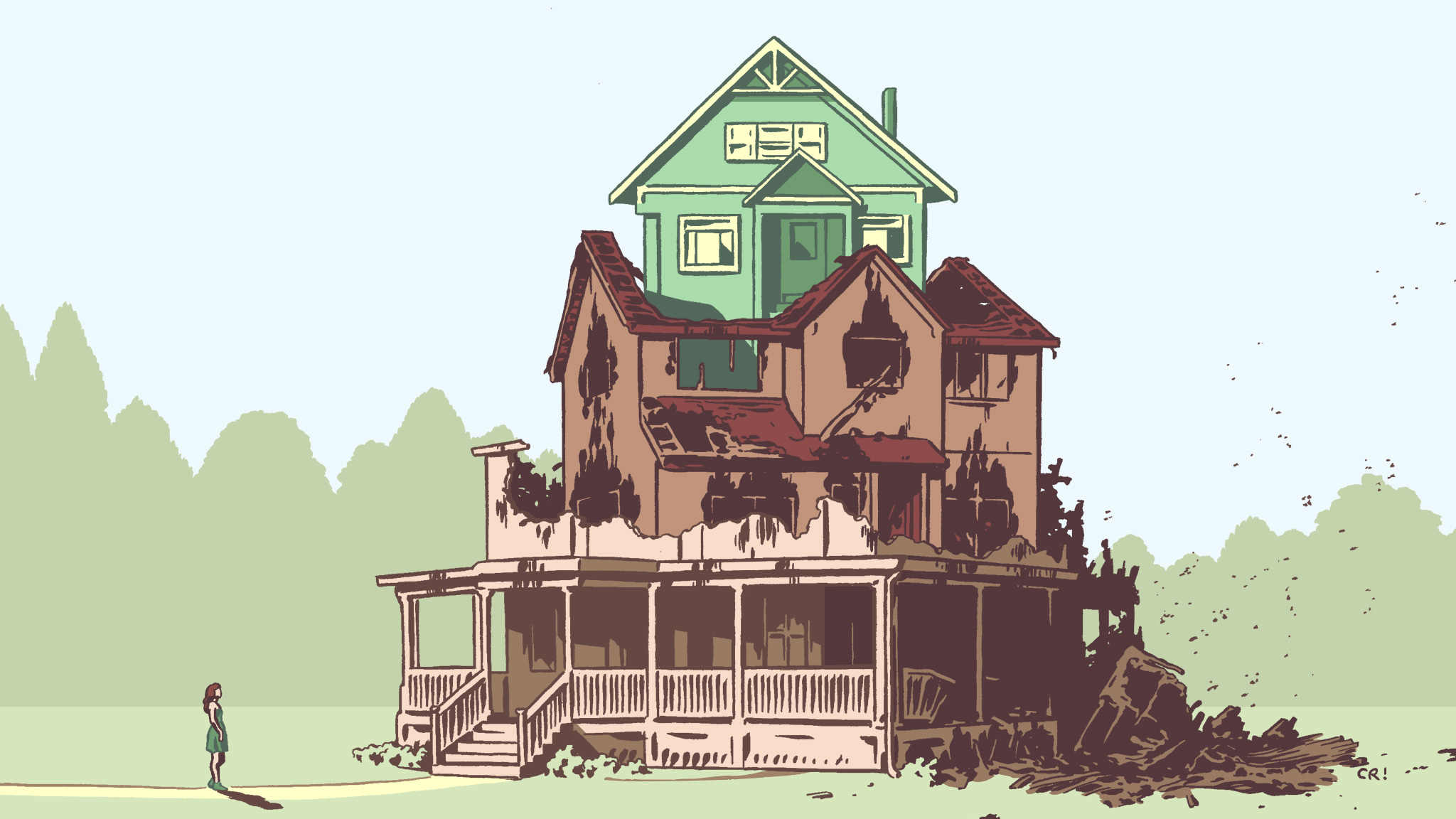My Family’s House Burned Down…Twice. Then the Bank Took It Away.
After years of rebuilding our beloved house (then doing it all over again), my parents had nothing left. But by that time I’d realized home is more than four walls.

Illustration by Casey Roonan
The week after I moved away to college, the house I grew up in caught fire. I don’t know exactly how the fire happened, only that it was an accident – something about a candle or faulty wiring, and a cruel twist of fate. The walls were black, with the back half of the house existing as a pile of ash sprinkled across the grass like confetti. There was a hole ripped straight through the roof. Nobody was hurt, but they couldn’t find the cat for hours. By the time he made an appearance – alive and well – they had already told me he was dead.
I’d told anyone who’d listen that I moved away to college to make a fresh start, but there was always a part of me that was planning to go back. I wanted to see the world and experience life, and I knew if I didn’t go away to school, I’d never leave. “People leave home to learn they wish they never left,” my father used to tell me. But I was young and just wanted to go. My first week of college in Vermont, I spent my days be…
Keep reading with a 7-day free trial
Subscribe to Narratively to keep reading this post and get 7 days of free access to the full post archives.



